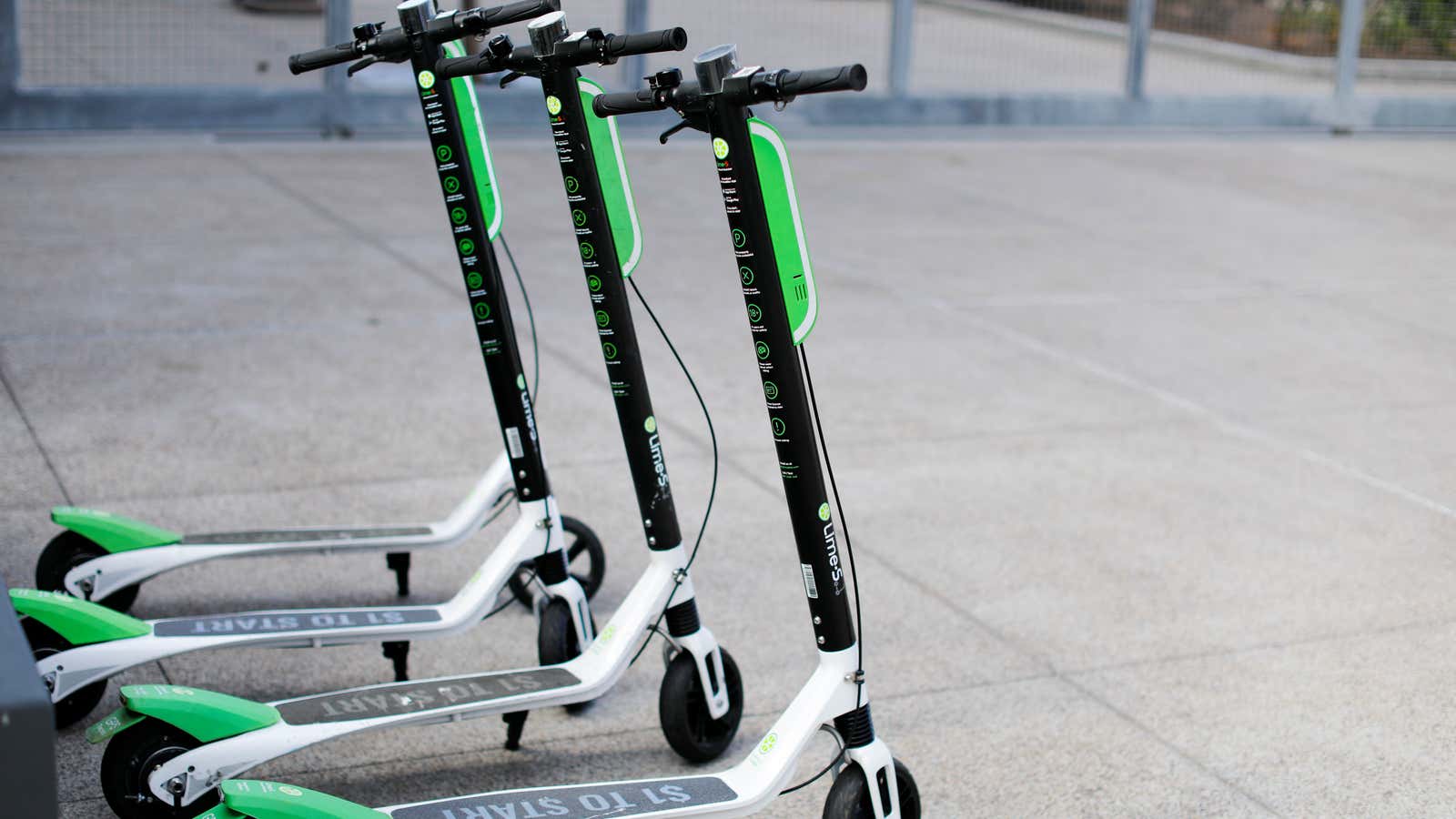Silicon Valley’s scooter startups, which have exploded across the country over the past six months, depend largely on Chinese-made vehicles. That makes them—and one of China’s biggest smartphone companies—vulnerable as the Trump administration threaten billions more of tariffs on Chinese goods.
Both the US and China have figured out $34 billion in goods that will face 25% tariffs come July 6. But round numbers are popular in trade wars, and both countries are also considering putting the tariff on another $16 billion in goods, to reach an even $50 billion each. On the US side (pdf, p. 9), the proposed list includes scooters, or if you want to get technical, HTS code 8711.60.00, defined as “Motorcycles (incl. mopeds) and cycles, w/electric motor for propulsion.”
That bodes poorly for a bevvy of startups in the US. Over the past few months, tech companies have flooded the streets with two-wheeled, electricity-powered standup vehicles that consumers can pick up, ride, and drop off anywhere for a fee—in essence, “Uber for electric scooters.”
The trend has gained momentum quickly. Bird, a scooter company which was founded in September 2017, is the fastest company to reach a $1 billion valuation since its establishment. LimeBike and Spin, two startups that look like clones of China’s bike-sharing model, have both launched electric scooter services. Even Uber is in on scooters via Jump, a startup it purchased back in April.
Most of the scooters owned by these companies are made in China. In San Francisco, for example, Quartz spotted both Bird and Spin using bikes made by the Chinese smartphone maker, which is planning a huge IPO this year (Bird didn’t confirm it uses Xiaomi bikes but Spin says it works with the company).
Logistics startup Flexport notes that over the last twelve months, the US imported some $670 million of products under the listed category.
At least some Chinese scooter products stand to get hit by a potential tariff on that code. Flexport tells Quartz that it has helped Bird import some of its scooters under HTS code 8711.60.00. Euwyn Poon, president at Spin, told Quartz that it received a batch of scooters from Xiaomi subsidiary Ninebot under a variant of the same code. The potential tariff would “hinder our ability to provide an increasingly popular, clean, and convenient transportation solution for American cities,” he added.
Xiaomi, Uber, LimeBike, and Bird did not respond to Quartz’s request for comment.
If a scooter currently costs each company $400 to purchase, a 25% tariff would raise the company’s final cost to $500. To offset the increase, startups will likely have to charge consumers more money per ride, dig deeper into their VC-funded coffers, or both.
The tariff isn’t final yet. HTS code 8711.60.00 is part of a list of 284 product categories that will be subject to public comment before any taxes are officially imposed. The due date for written comment is July 23, with a hearing scheduled for July 24. If lawmakers (or Silicon Valley lobbyists) can convince the Trump administration by then to drop electric scooters from the list, the scooter boom might continue to expand. If they can’t, expect the pace of startup deaths in the sector to accelerate.
